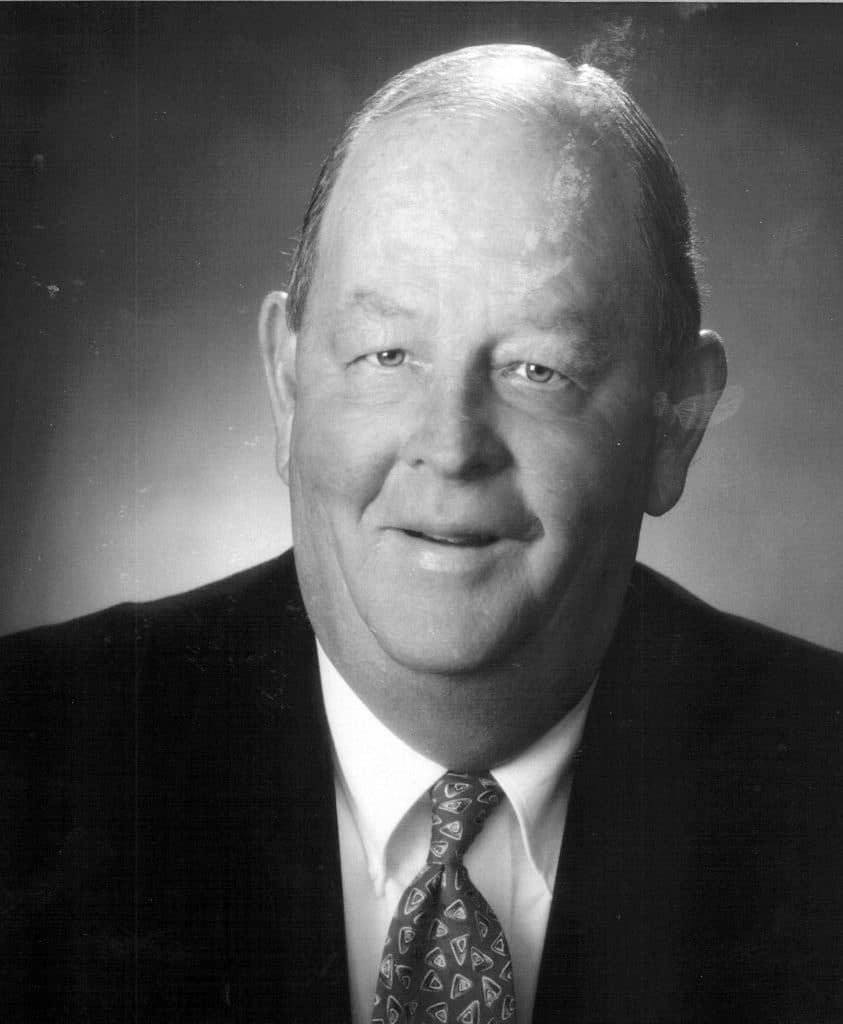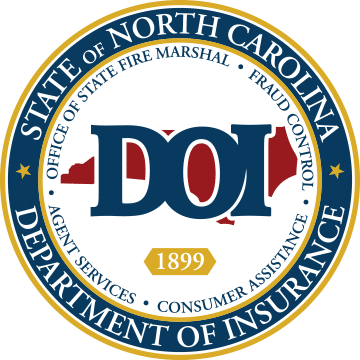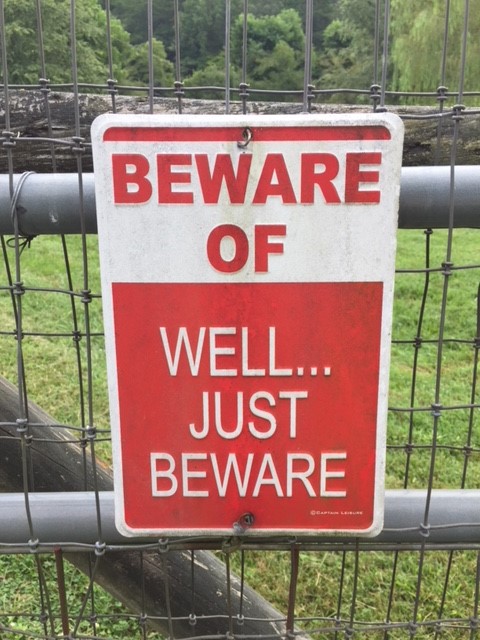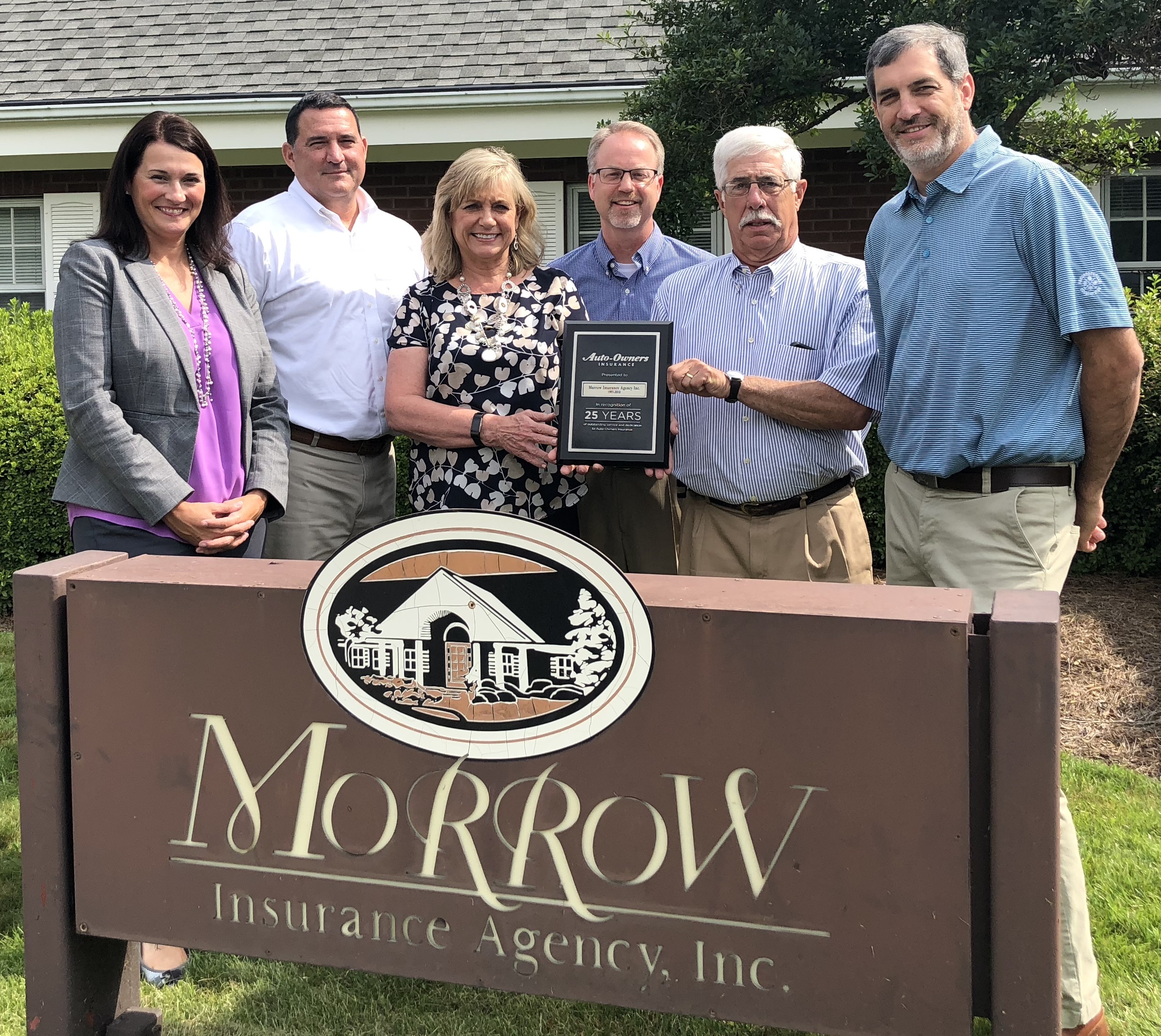 Morrow insurance is pleased to announce that CEO Jim Rasmussen has been named Chair Elect of the Henderson County Partnership for Economic Development. This organization is a partnership between public and private entities with over 140 contributing private investors that work together to protect and create prosperity in our community. They accomplish this by working with existing and prospective businesses and industries to help identify issues such as workforce development, site identification and selection, financial incentives, infrastructure, permitting and community resources. The Partnership has worked with businesses such as Sierra Nevada, GF Linimar and Elkamet.
Morrow insurance is pleased to announce that CEO Jim Rasmussen has been named Chair Elect of the Henderson County Partnership for Economic Development. This organization is a partnership between public and private entities with over 140 contributing private investors that work together to protect and create prosperity in our community. They accomplish this by working with existing and prospective businesses and industries to help identify issues such as workforce development, site identification and selection, financial incentives, infrastructure, permitting and community resources. The Partnership has worked with businesses such as Sierra Nevada, GF Linimar and Elkamet.Your Neighbor’s Tree Could Be Your Problem
Financial Planning for Small Business
Is your business protected should something happen to you or one of your key employees?
Contact us today to learn more about how proper financial planning can help protect your business.
William “Bill” F. Stokes, Jr. 1938-2020

It is with great sorrow that we share the passing of William “Bill” F. Stokes, Jr. on May 23, 2020.
Bill was President of Morrow Insurance from 1980-1994 and Chief Executive Officer from 1994-2000. He purchased the agency from Sam Padgett in 1980, and through his leadership, grew Morrow Insurance to the leading insurance agency in Henderson County.
Bill’s commitment to the community has been extensive and varied and is reflected in his many volunteer activities. He led the fundraising efforts for the Boys and Girls Club of Hendersonville from 1993-1998. He initiated the Hole-In-One contest as a fundraiser for the Henderson County Heart Association. He is past President of the Rotary Club and served on the Chamber of Commerce Board of Directors from 1982-1989 and was President in 1987. He also served on the Board of Directors of the Community Foundation of Henderson County for six years serving as Secretary. Mr. Stokes has served as the President of the Board of Directors of both Blue Ridge Community Health Services, Inc. (BRCHS) and Blue Ridge Community Health Services Foundation. As a tribute to Bills fundraising efforts and leadership, BRCHS dedicated the William F. Stokes, Jr Dental Center in his honor. Bill was also the 1999 recipient of the Richard C. and Vina. L. Sauer Charitable Leadership Award presented by the Community Foundation of Henderson County.
Memorial donations in memory of William Stokes, Jr can be made through Boys and Girls Club/ Four Seasons Hospice.
Bill’s full obituary may be found at Jackson Funeral Service: https://jacksonfuneralservice.com/obituaries/05-23-20-william-finley-bill-stokes-jr/
Our thoughts and prayers go to the Stokes family during this time of loss.
Personal Auto Insurance COVID-19 Premium Credit
With Stay at Home Orders affecting much of the country during April and May 2020, most insurers are offering a 15% credit on personal auto insurance policies due to reduction in travel.
Most insurers will be placing this as a credit on your account that will be applied toward future bills, however, some will be issuing a refund via check. Please refer to the appropriate section below for details involving how your specific insurer is handling the credit.
This credit is not applicable for business auto policies.
Auto-Owners Insurance
Safe at Home Refund
Due to a reduction in travel across the nation caused by the COVID-19 pandemic, we will be providing up to a 15% premium refund to our personal automobile policyholders for the months of April and May. Here are details:
- This refund will automatically occur. There is no action needed on your behalf.
- The refund will be processed upon regulatory approval. We expect this will take place during the month of May.
- This refund will apply to autos on your policy that include bodily injury coverage.
- If you are enrolled in our Customer Center, you can locate your refund notice when you log in. If you are not enrolled in the Customer Center, please click here to enroll. Your notice will be available upon state regulatory approval sometime in May.
- Your refund will be applied to any outstanding balance on your billing account. Any remainder will be returned via check or your automatic payment method.
- New customers written during the months of April and May will also be eligible for this refund. Policies need to be in force effective May 31, 2020 for the refund to apply.
- Existing customers must have bodily injury coverage in force on March 31, 2020 in order for the refund to apply.
- ATVs, snow mobiles, golf carts, campers and similar items will not be eligible for the refund.
- For Michigan customers, the Michigan Catastrophic Claims Association (MCCA) charge will not be included in your refund calculation. MAIPF/JUA policies are excluded from the refund.
- For North Carolina ceded auto policies, the refund will not apply.
- If you have questions, please contact your Auto-Owners Independent Agency.
Cincinnati Insurance
STAY-AT-HOME PERSONAL AUTO CREDIT
It’s taken all of us staying at home, keeping our distance and practicing strong personal hygiene to slow the spread of COVID-19. As a result of your reduced driving, we’re offering a Stay-at-Home credit to all personal lines auto policyholders.
Cincinnati Insurance and Cincinnati Casualty personal lines auto policyholders will receive a 15% credit per policy on your April and May premiums – pending regulatory approval. No action is required on your part to receive this discount.
Adding this Stay-at-Home credit supports the other actions we’ve taken: pausing cancellations due to nonpayment of premium and waiving late fees until at least May 31; and waiving restrictions on policyholders now performing delivery services in efforts to protect the wellbeing of your communities.
Policyholders who pay your premium directly to Cincinnati Insurance: If you don’t have any unpaid premium for the remainder of your policy term, you will receive a check directly from Cincinnati or a deposit to your bank account if you have signed up for Electronic Funds Transfer. Otherwise, you will receive a 15% credit on your next billing statement.
Policyholders who pay your premium to your agent: You will receive a check directly from Cincinnati. Please continue to pay any remaining installments as usual.
Kemper Insurance
Kemper’s personal auto customers who have a policy in force as of April 30 will be credited 15% of their April premiums in May and customers with a policy in force as of May 31 will be credited 15% of their May premiums in June. The two premium credits will total approximately $100 million that we are returning to our policyholders, pending regulatory approval. There is no action required on your part, and the credits will be applied directly to your policy. If you have already paid your policy in full, you will receive a refund of the credited amounts.
National General Insurance
In support of employees, policyholders and business partners, National General is providing a 15% credit on April premiums for personal auto insurance policyholders. The credit applies to personal auto insurance customers with a policy in force as of April 30, 2020, and will automatically be credited to the policy, subject to state regulatory approvals and other relief requirements.
Penn National Insurance
We are here to help with a Feel Secure Auto Policy credit
Together, we are making a difference in curbing the spread of COVID-19. Staying at home. Driving less. And, driving less means fewer accidents.
We are applying a 15% Feel Secure credit for two months of premiums on Auto policies that are in force as of April 30.
Beginning in May, the credit will be applied to your next premium balance or refunded if your premium has been paid in full.
Progressive Insurance
Personal auto premium credit (NY auto customers see below*)
- If you have an active personal auto policy at the end of April or May, you will be receiving a 20% premium credit. There is nothing you need to do. We will calculate your credit for you at the end of that month, and you’ll see it in your Progressive account a few weeks after that. It’s all automatic—our plan is to provide you a confirmation message when each credit is in your account.
WHAT YOU NEED TO QUALIFY
To receive a credit of 20% of your April premium, your personal auto policy must be active at the end of April. Similarly, to receive a credit of 20% of your May premium, your personal auto policy must be active at the end of May.
WHEN YOU’LL RECEIVE YOUR CREDIT
We’ll calculate your credit within a few weeks of the end of April and May. You’ll receive your credit shortly after that.
HOW YOUR CREDIT WILL BE APPLIED
Once we’ve calculated the credit for your policy, we’ll automatically apply it to any outstanding balance or your next bill. And if you’re already paid in full, we’ll return the credit amount directly to your payment account or issue you a check.
HOW TO ESTIMATE YOUR CREDIT
Because your premium can change throughout the month due to renewal or policy changes you request, we can’t tell you exactly what your credit will be until the end of the month. But you can get a sense of what your credit will be by taking 20% of your normal monthly premium.
For example, if your 6-month policy premium is normally $900, one month of premium would be roughly $150. In that situation, you’d be likely to receive a credit of $30 for April. Then, if your policy stays active, you’d receive an additional $30 for May. Keep in mind that unique policy and billing situations may apply. And if you bought a policy after the first of the month, your credit will be prorated—we’ll base it off of the amount of time you were insured with us that month.
- For more information, please see our premium credit FAQs.
- These credits are subject to approval by your state regulators.
- *For NY customers: NY credits will be applied for premium of the months of May and June, instead of April and May. To receive a credit of 20% of your May premium, your personal auto policy must be active at the end of April. Similarly, to receive a credit of 20% of your June premium, your personal auto policy must be active at the end of May. Credits will be applied within a few weeks of the end of each month. It doesn’t matter when you purchased your policy—you will receive a 20% credit for the premium of those months, and it won’t be prorated. There’s nothing you need to do. We will automatically apply your credit to your policy.
Travelers Insurance
The Stay-at-Home Auto Premium Credit Program provides a 15% credit to U.S. personal auto insurance customers on their April and May insurance premiums. The company will automatically credit customers’ accounts, providing them with prompt and much needed relief during this time.
The program is available to U.S. personal auto insurance customers who have active policies between April 1, 2020, and May 31, 2020.
You will automatically be credited 15% on your April and May auto premiums. These credits will be reflected in future bills.
- If you pay by monthly installment: The credit will be applied to future bills. The April credit will be applied by June 20, and the May credit will be applied by July 20.
- If you have a recurring automatic payment through your bank account (EFT) or credit card: The credit will be applied across future installments, starting in May for the April credit and in June for the May credit.
- If you have already paid your policy in full: The credit will be issued to you via your last payment method – the April credit will be issued in May, and the May credit will be issued in June.
- If you paid by payroll deduction: The credit will be mailed to you via check. The April credit will be mailed in May, and the May credit will be mailed in June.
Premium Payment Deferral Order Issued by NC Department of Insurance
3/27/2020 – Premium Payment Deferral Order Issued
View Order Issued By NCDOI
View Bulletin 20-B-06 Directed to Insurance Companies and Agencies
NC Insurance Commissioner Mike Causey activated an emergency declaration that will defer insurance premium payments for residents in all 100 counties. This order was activated as a result of President Trump’s March 25th Major Disaster Declaration for the State of North Carolina and applies to all insurance companies defined in the statute including health insurance, residential property and automobile insurance. The order will defer not only premium payments but will also defer statutory time requirements. Notices of cancellation, for example, will be deferred. Once the deferral expires, policyholders will be required to bring their payments current to avoid cancellation. This order will expire 60 days from the date of issuance, unless extended by the Commissioner.
This is probably the bulletin that causes the most confusion as it puts some very important consumer protections in place that impact premium payments, cancellations, non-renewals, claim filing, and many other policy requirements:
1) For policies insuring real property and contents located within counties included in the Commissioner’s order, there is a stay of the proof of loss for a time period not earlier than the expiration of the disaster proclamation, unless extended by the Commissioner.
2) Insurance companies shall give customers residing within these counties the option of deferring premium payments due during the time period covered by the disaster proclamation. The deferral period shall be thirty (30) days from the last day the premium payment may be made under the policy.
3) This 30-day deferral period applies to any statute, rule, or other policy provision that imposes a time limit on an insurer, an insured, claimant, or customer to perform any act during the time period covered by the order related to individuals that reside in these counties such as cancellation or non-renewal provisions.
4) This 30 day deferral period also applies to any time limitations imposed on insurers under the terms of a policy or contract or provisions of law related to individuals who reside within these counties.
Please contact your insurance carrier to communicate your desire to defer payments and confirm that this order applies to your specific situation.
OSHA Guidance on Preparing Workplaces for COVID-19
To reduce the impact of COVID-19 outbreak conditions on businesses, workers, customers, and the public, it is important for all employers to plan now for COVID-19. For employers who have already planned for influenza pandemics, planning for COVID-19 may involve updating plans to address the specific exposure risks, sources of exposure, routes of transmission, and other unique characteristics of SARS-CoV-2 (i.e., compared to pandemic influenza viruses). Employers who have not prepared for pandemic events should prepare themselves and their workers as far in advance as possible of potentially worsening outbreak conditions. Lack of continuity planning can result in a cascade of failures as employers attempt to address challenges of COVID-19 with insufficient resources and workers who might not be adequately trained for jobs they may have to perform under pandemic conditions.
The Occupational Safety and Health Administration (OSHA) developed this COVID-19 planning guidance based on traditional infection prevention and industrial hygiene practices. It focuses on the need for employers to implement engineering, administrative, and work practice controls and personal protective equipment (PPE), as well as considerations for doing so. This guidance is intended for planning purposes. Employers and workers should use this planning guidance to help identify risk levels in workplace settings and to determine any appropriate control measures to implement. Additional guidance may be needed as COVID-19 outbreak conditions change, including as new information about the virus, its transmission, and impacts, becomes available.
Download OSHA Publication 3990 Here
Visit the OSHA website for further information: https://www.osha.gov/SLTC/covid-19/
OSHA3990How to Protect Your NC Agritourism Farm from Danger


by Tracy Cotton CISR, CIC
You protect your livestock from predators with fencing and guardian animals. You protect your crops with preventative measures such as field rotation and irrigation. You protect your machinery with regular inspection and maintenance.
What are you doing to prevent danger from opening your farm to guests?
Danger can come from many sources. Maybe it’s preventable like locking up sharp tools or maybe it’s unpreventable like a lightning strike before rain ever starts. The old adage, “An ounce of prevention is worth a pound of cure” is especially true in what you can do to reduce the risks on your NC Agritourism Farm.
Even if you can’t prevent the danger you can be prepared for the aftermath.
These 30 actionable tips can help you improve your preparation in the off season, safety focus during the season, and protecting yourself when danger turns into worst case scenarios.
BEFORE your season begins:
- Review the plans for entrance, exit, parking, restrooms, hand washing, food/beverage, signage, handicap accessibility, first aid, shelter from the sun, places to sit, etc. and decide if any adjustments should be made based on the prior years experience to improve safety and efficiency. This is especially important if you are adding activities.
- Inspect your NC Agritourism Liability Law sign annually. Is it visibly displayed in readable condition at the entrance to your farm at minimum? Consider adding a second sign where guests pay for admission or enter the activity area. A Spanish version is available for farms where there are regular guests who speak Spanish. Contact www.ncana.org to purchase new signs.
- Create or revise your permission/liability waiver annually (consider offering a Spanish version) – consult with your attorney on wording.
- Develop an Emergency Response Plan and update annually. Consider unforeseen events such as tornados, active shooters, forest fire. Consult with fire and emergency response units in your area to evaluate access to your farm.
- Create or update farm safety rules that are posted and enforced by your staff.
- Spend time training all staff and volunteers on the Emergency Response Plan, Safety Rules, and assign how first aid will be administered. Have everyone rehearse the procedures.
- Review safety equipment condition prior to season (especially fire extinguishers and smoke detectors). Review equipment manuals for safety warnings and procedures. Keep readily accessible for all staff.
- Create or update your Accident report. Provide ample spaces to capture name, address, and phone number of person making the report and same information for any witnesses.
- Review your contracts annually with your attorney that you use for renting out any part of your farm (B&B guest, AirBnB renter, weddings, retreats, private parties, even birthdays). Check that the contract includes the NC Agritourism statute, your safety rules, and any insurance requirements of the renter (i.e. event or wedding liability, especially covering alcohol if that is allowed).
- Invite your insurance agent to visit the farm prior to season to walk through and provide additional insight.
- Review your insurance policies annually with your insurance agent and notify them of any changes or additions to your activities.
DURING season: - Utilize safety checklists on a daily basis in season so that all equipment, fencing, signage, hygiene, are monitored prior to guests arrival
- If cell phone service is unpredictable or weak use walkie-talkies to communicate amongst staff but make sure everyone has one (or at least one worker in every area where guests are).
- Make sure all the staff have breaks, stay hydrated, etc. so they can be at the top of their game for the guests.
- Consider having a “secret shopper” visit (on a busy day if possible) and report back if they observe trouble areas or staff concerns.
- Monitor the feedback from guests, including mentions of your farm on social media. It’s important to make sure you address negative reviews ESPECIALLY if they are safety related, but also from a public relations aspect.
- Recognize excellent safety compliance by staff or volunteers. Low cost ideas include a small gift card or traveling “trophy” for an outstanding job of finding or solving a safety issue.
- Praise your staff publicly, reprimand privately – especially on safety issues. Document if a paid employee or even a volunteer is “fired” for failure to follow safety guidelines. Also be sure to document all training activities with staff signing a log to confirm attendance.
AFTER an incident occurs: - When an accident or incident occurs review the incident report at the earliest opportunity.
- If possible the farm owner/operator should come “on scene” to show concern and assess the severity.
- Take photos of property damage if possible.
- Determine if any photos or video was taken by a guest during an accident – you won’t be able to “confiscate” but these could be damaging possibly on the legal/insurance level if there is discrepancies in what happened versus what was reported. On a public relations level it is important to address if they get posted on social media. Be aware a photo or video could also serve as evidence of a visitor orchestrating the injury.
- Having your own video equipment as part of your security system can be beneficial.
- Most insurance carriers will want to be notified as soon as possible of the incident even if the injury seemed minor or even if the incident was not obviously “at fault” (i.e. a guest has a heart attack, a diabetic passes out, a child gets a nose bleed)
- Discuss your coverage limits and any insurance considerations you need to be aware of as soon as you file any loss with your insurance agent. They may have to defer to the claims adjuster since investigating the incident is often necessary to determine what coverages or exclusions are involved.
- Keep all information pertinent to the incident together in a safe place. Have a long term place to store even if nothing comes up immediately.
- Document all phone calls, voice mails, etc received from your insurance carrier with caller information. There are often several insurance company representatives that will be involved and referencing who you spoke with, when you spoke to them, what action was to be taken, etc could be crucial.
- If you have filed the incident as a claim, courteously refer any interested parties (i.e. injured party, their family, any doctor/hospital) to speak directly to the company unless instructed otherwise by your attorney or insurance company. If you feel uncomfortable with giving out your claim number and phone number of adjuster to someone you don’t know then offer to have the claims adjuster call them back and get in touch with your adjuster immediately.
- Use the incident as a learning opportunity and revise rules or safeguards if necessary.
- After the claim has been closed or at the end of season take time to discuss with your insurance agent if there are any anticipated repercussions with your policy. Filing a loss doesn’t necessarily equate to a higher premium at renewal, but reviewing your loss history every year is the best way to understand what to expect.
Many of these tips are free or low cost to protect your NC Agritourism farm from danger. Once an incident occurs however it is insurance protection that can prevent the inevitable danger from becoming a financial disaster. As suggested in many of these tips having a trusted insurance agent as a resource is invaluable.
If you are seeking a trusted insurance advisor in North Carolina for your Agritourism Farm please contact me, Tracy Cotton, tcotton@morrowinsurance.com or call me at the office, 828-652-6212.
Additional resources are available online:
General information:
https://asapconnections.org/resources/for-farmers/ ASAP’s Farmer resource page has a number of good articles on Agritourism.
www.nc-ana.org NC based organization that brings resources and advocacy for Agritourism farms. One of the many perks of membership is reduced pricing for Agritourism Liability statute signage in both English and Spanish.
http://www.ncagr.gov/markets/agritourism/ The main information page from NC AG for Agritourism and links to other resources including marketing.
Farm Safety Information:
www.safeagritourism.org A great Agritourism resource for walkthroughs, checklists and more from the National Children’s Center for Rural and Agricultural Health and Safety.
www.umash.umn.edu The Upper Midwest Agricultural Safety and Health Center has an in-depth library of articles, presentations, checklists and more on Agritourism (plus almost any other farm topic you can imagine).
https://www.osha.gov/dsg/topics/agriculturaloperations/ Not specifically on Agritourism but chock full of articles, fact sheets, and publications on agricultural operations. The statistics are scary but informative.
Small Business Cyber Risk
by Terry Robinson, Technology and Cyber Risk Manager
When most business owners think about the risks to their business, they think about fire, theft, water damage and lawsuits. Your computer system is another area of risk than could cost your business a lot of time and money.
You have data. You have data on your employees and your customers. You have accounting information and billing information. You have proprietary business information. All of that is valuable and you need to protect it.
A data breach occurs when that data is accessed by unauthorized party This could be through the form of a hacker, opening a malicious email, visiting an infected website or an employee error. When you have a data breach there are data breach laws in place that say you must notify your customers or the affected individuals, you must provide credit monitoring, you must conduct computer forensics to determine the source and the scope of the breach. You may also be subject to fines and penalties. Another big part of a data breach is your public relations expense. Your business reputation is at risk. If your customers think you are not protecting their data, they may go elsewhere.
One of the biggest threats we saw last year was ransomware. Ransomware is when someone accesses your computer through hacking, a malicious email, visiting an infected website and encrypts your data files. The criminal demands a ransom to decrypt it, typically in the tens of thousands of dollars. This can prove to be costly for a business.
Another big threat we see is Social Engineering Fraud. In this case a cyber criminal posing as a manager of the business or the representative of a vendor tricks an employee into sending money to a fake account. This can cost a business tens of thousands of dollars. These are things that can happen to you and have happened to some of our clients.
Your responsibility as a business owner is to know what threat there are to your business, understand the laws that govern your business and what your obligations are as a business owner, have an incident response plan, conduct employee training and make sure you have the right insurance coverages in place to protect your business in case you are a victim.
At Morrow Insurance we can help educate you on current cyber threats and guide you to resources to help you secure your business. We can also check your policies to make sure you are covered either through your crime policy or through a stand-alone cyber policy.
Some business owners think they do not need insurance coverage if they are using a third-party service to host their data in the cloud. Most of the providers limit their liability in case of a data breach. Remember your customers provided their data to you.
Contact us at Morrow Insurance today for more information or to discuss your business needs. The next big threat is right around the corner. It could happen to you.
Introduction to Risk Management
by Dan Mays, Director of Risk Management
I’m going to talk about risk management a little bit today, what it is, how it relates to Morrow Insurance, the services we can provide and a little bit of background on the various aspects of risk management.
Insurance is one form of managing risk. It’s methodology is paying a premium to somebody who is going to take care of it, if there is a loss.
Our goal with risk management within the Morrow Agency is to prevent losses, to be proactive in nature, to be out in front of it before there’s a lawsuit and help avoid accidents and injuries.
That is the common sense approach to risk management here at Morrow. There are many approaches to risk management, and they can be very technical in nature. The code of federal reference for construction is this thick. It’s full of rules and regulations that are basically written in blood from accidents that have occurred.
My background is in claims, handling the lawsuits on the downside and being reactive. The goal here is to try to take that experience and translate it into what may happen. Sometimes I can sound like the sky is falling, but risk management addresses the many things that have gone wrong in the past and how can we prevent that through either training, workplace walkthrough audits and many different manners.
One of the training resources we have is some of the JJ Keller training programs. They’re both live and DVD based. This one happens to be on HAZCOM, which is something OSHA requires on a frequent basis. Training is a big piece of what risk management is. My approach to risk management is heavily influenced by having reacted to claims in the past. I can quote you rules and regulations all day long, but I’d rather address situations that have occurred in real life, situations where there’s been a downside after an accident or after an incident.
We can focus on workers compensation, injuries accidents to employees and our associates. We can focus on property risk management, which addresses the many risks that are incumbent with fire, wind, flood and whatnot. We can focus on general liability risk where a company may be operating an environment where others are put at risk or there’s the opportunity for property or bodily injury damage. Another big arena for a risk management is something we do everyday, driving down the road. Auto fleet management, the risks that are incumbent with driving on our highways today, with distracted driving as a huge issue. We can address that through a number of means. Cyber liability is a new area of risk management. We read every day in the newspaper of companies that have been compromised through the internet or through cyber hacking.
Risk management is a is a broad category. Some call it safety, some call it loss control. Many of our insurance carriers have their own risk management or loss control departments. Their goal is a little different than ours here at Morrow. Insurance carriers loss control folks are coming out. They are offering suggestions, but they are also then reporting back to their insurance company as to what they see. It is not negative. Their goal is to prevent accidents, just as anyone else, but the beauty of Morrow is that we’re just there doing this between our client and the agency. We’re actually there to try to be proactive, and when we say we’re here to help that’s as true as it can get. We have no agenda. We’re really there to tell the story. If there are many good things going on, we want to communicate that to our carrier partners. If there are areas for improvement, we’d like to offer the resources through training, through our experience and through participation in a safety program.
We want to offer that kind of help and we do believe it is helpful. Our services to clients include OSHA 10-hour classes. You can get a card that you can present to OSHA showing you’ve been through 10 hours of construction safety training. Mock OSHA walkthroughs, walking through a facility to determine if there’s any hazards that OSHA might be concerned with, in advance of an OSHA audit and possibly avoiding some fines.
From a workers compensation standpoint, safety committee meetings, walkthroughs to identify possible accident causes or review of incident to see if there’s a trend. Ten incidents are going to result in one accident, so if there are number of close calls and maybe something we can assist with to prevent that.
That’s risk management at its core. Many folks just take the path of avoidance, which is transferring a risk, totally having somebody else do a dangerous process or procedure. That occurs to some degree but there’s not as much flexibility there. Our goal is to be Innovative and provide controls and advice that can assistant in proactively addressing the risk management.
For more information about Morrow Insurance Risk Management Services, contact your Morrow agent or email Dan at dmays@morrowinsurance.com.
Meredith Tidwell recognized for helping consumers with qualified health coverage
 Hendersonville, NC – Meredith Tidwell of Morrow Insurance Agency, Inc has been recognized for her hard work and expertise in helping consumers enroll in and manage qualified health coverage through the Health Insurance Marketplace.
Hendersonville, NC – Meredith Tidwell of Morrow Insurance Agency, Inc has been recognized for her hard work and expertise in helping consumers enroll in and manage qualified health coverage through the Health Insurance Marketplace.
This nationwide recognition from the Centers for Medicare & Medicaid Services (CMS) as a member of the 2019 Marketplace Circle of Champions highlights Meredith’s success in enrolling 20 or more consumers during this Open Enrollment Period.
“Consumers turn to agents and brokers for trusted advice and guidance in selecting plans, enrolling in coverage, and managing their health insurance policies throughout the year,” said Randy Pate, Director of Center for Consumer Information & Insurance Oversight (CCIIO) operation within CMS, which oversees the Marketplace. “We thank Meredith Tidwell for her hard work and exceptional service in helping Americans get coverage.”
The Marketplace Circle of Champions program recognizes the hard work, expertise and service of Marketplace-registered agents and brokers. Agents and brokers who assist 20 or more consumers qualify for the Marketplace Circle of Champions.
Eligible consumers can enroll in Marketplace coverage during this year’s Open Enrollment Period, which runs November 1 – December 15, 2018. Consumers with questions about their coverage or who would like help enrolling, can contact Meredith Tidwell at mtidwell@morrowinsurance.com.
Joyce Farms Relationship
 Insurance isn’t just a product, but a relationship. The 2018 Issue II of the Carolina Agent’s Journal highlights that relationship between Joyce Farms and Morrow Insurance Agency, Inc. in an article written by Joe Stewart.
Insurance isn’t just a product, but a relationship. The 2018 Issue II of the Carolina Agent’s Journal highlights that relationship between Joyce Farms and Morrow Insurance Agency, Inc. in an article written by Joe Stewart.

Ron Joyce, CEO, Joyce Farms
Joyce Farms came to Morrow Insurance through CEO Ron Joyce’s fraternity brother, Spencer Clendenin in 2013. Morrow Vice President, Brian Reep began working with the account shortly thereafter. According to Ron Joyce,
“When Brian began working with Joyce Farms, his first step was to visit the company’s operation and learn every single thing he could about how they do what they do. Any business relies on cultivating strong personal connections with customers, but Brian literally took the time to learn how our company operates,” said Ron. He went through every aspect of our operation – pastures, slaughterhouse, warehouse space, every nook and cranny. Armed with his first-hand observations, he was able to identify the right carrier with the right coverage options to meet the risks our business faces.”

Brian Reep
Vice President
Account Executive
Morrow Insurance
Ron goes on to say, “In 2014, following two significant workers’ compensation claims that came in quick succession, Brian suggested Joyce Farms create a Safety Committee, which includes employees from throughout the company. We have developed a workplace culture around safety, and throughout the workday, employees will offer up suggestions for doing something differently or adjusting a workspace in ways that better prevent accidents from happening.”
This is model about how insurance programs and partnerships should work for the benefit of all parties.
Great job Brian!
For the full article see:
Jim Rasmussen Inducted into the Blue Cross and Blue Shield of North Carolina Producer Hall of Fame
 Morrow Insurance Agency, Inc. is pleased to announce that Jim Rasmussen, Chief Executive Officer, has been inducted into the Blue Cross Blue Shield of North Carolina (BCBSNC) Hall of Fame. He was inducted into the Hall of Fame at a recent summit for top producers held in July, 2018.
Morrow Insurance Agency, Inc. is pleased to announce that Jim Rasmussen, Chief Executive Officer, has been inducted into the Blue Cross Blue Shield of North Carolina (BCBSNC) Hall of Fame. He was inducted into the Hall of Fame at a recent summit for top producers held in July, 2018.
BCBSNC’s elite Hall of Fame inductees are selected based on a set of extensive criteria. Hall of Fame members serve as trusted representatives in the insurance industry. They exhibit a high level of professionalism and commitment to customer service and community. This is the highest recognition that can be bestowed upon a BCBSNC broker. Only 30 BCBSNC brokers in the state of North Carolina have been selected for this honor since the inception of the BCBSNC Hall of Fame in 2000.
As an independent insurance agent, Mr. Rasmussen represents all insurance carriers, TPAs and industry vendors with the same level of professionalism, and, consistently strives to meet the needs of his clients. He has worked in the health insurance industry since 1990 and has been with Morrow Insurance since 1997.
“I am honored and humbled to receive this recognition. My goal is to bring the best solutions to my clients and represent our industry with integrity. It is a privilege to help serve the needs of my community”, states Rasmussen.
4 Things to Know Before You Buy Business Insurance
Own a Business? Check out Tracy Cotton’s discussion with the folks at Trusted Choice on the 4 Things to Know Before You Buy Business Insurance.
Celebrating 25 Years with Auto-Owners

Pictured left to right, from Auto-Owners Insurance are Monica Gardner, Regional Vice President and Kevin Rock, Marketing Representative. Accepting the plaque for Morrow Insurance are Colleen Hobbick, Operations Manager, Jim Rasmussen, Chief Executive Officer, Dave Shaffer, Chairman of the Board and Brett Shaffer, President.
Auto-Owners Insurance Company and Morrow Insurance Agency, Inc., recently celebrated the 25th anniversary of their partnership. The agency has represented Auto-Owners in North Carolina for a wide range of personal and commercial insurance products since 1993. Auto-Owners Insurance is headquartered in Lansing, Michigan. Recognized for exceptional financial strength and stability, it is among the nation’s largest insurers and provides insurance to nearly 3 million policyholders.
According to Jim Rasmussen, Chief Executive Officer of Morrow Insurance, “Representing top companies like Auto-Owners provides the strength and flexibility that independent insurance agents need to provide their clients with the right products and services to meet their insurance needs.”



